When installing a new heat pump or replacing an old one, most people are mainly concerned with how long a heat pump lasts as a cautionary measure of telling how much their new investment will pay off in the long run.
Heat pumps are highly versatile HVAC appliances since you can use them for spatial heating, cooling, dehumidification, and even domestic water heating.
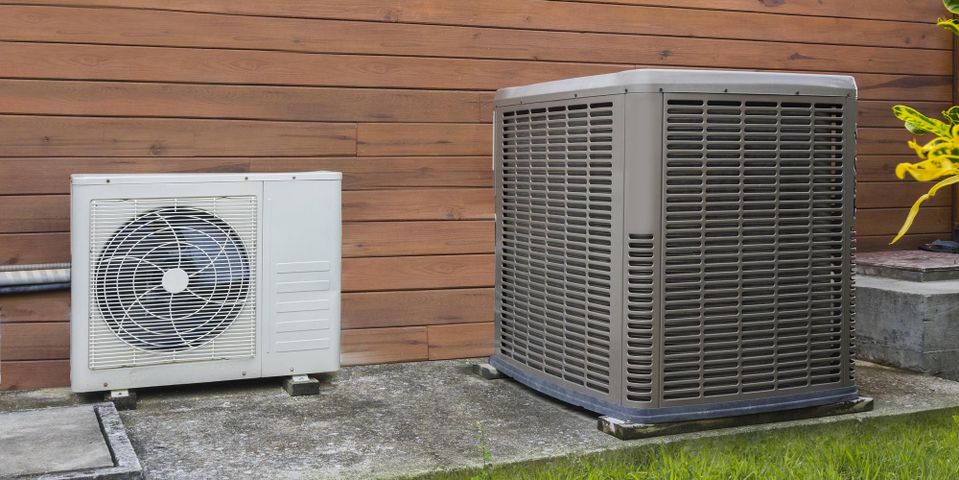
However, this versatility pits them against themselves, especially for the compressor because it usually runs for extended periods. But you need not worry about how long your heat pump will last or whether your investment in it will pay off. Read through to find out more.
How Long Should Heat Pumps Last?
The Air Conditioning, Heating & Refrigeration Institute (AHRI) estimates that a heat pump lasts 14-15 years on average. Most heat pump manufacturers acknowledge that their heat pumps last between 10 and 15 years of regular use.
Older heat pumps produced before the 1980s had a life expectancy of about 15 years. Although ten years may seem to be too little for a heat pump to last, a lower-end unit might last as few as seven years in a coastal climate where saltiness is high.
Due to advancements in technology, modern heat pumps can last up to 20 and 25 years of regular use. However, this applies mostly to high-end models, which can be costlier to install, but worth buying since they pay off in a few years because of reduced heating bills.
Factors Determining Heat Pump’s Lifespan
Several factors come into play in determining a heat pump’s life expectancy. It’s worth noting that the factors below co-dependently determine how long your heat pump will last, and no one factor should be overlooked.
Type of Heat Pump
There are three major types of heat pumps, depending on the source of their heat.
Air-source heat pumps are the most common in residential homes and business premises. Water- and ground-source heat pumps are less common because of their complexity and high installation costs.
With technological advancements, manufacturers are now making dual-source heat pumps that rely on air and water as heat sources. These types last the longest of all types of heat pumps on the market today.
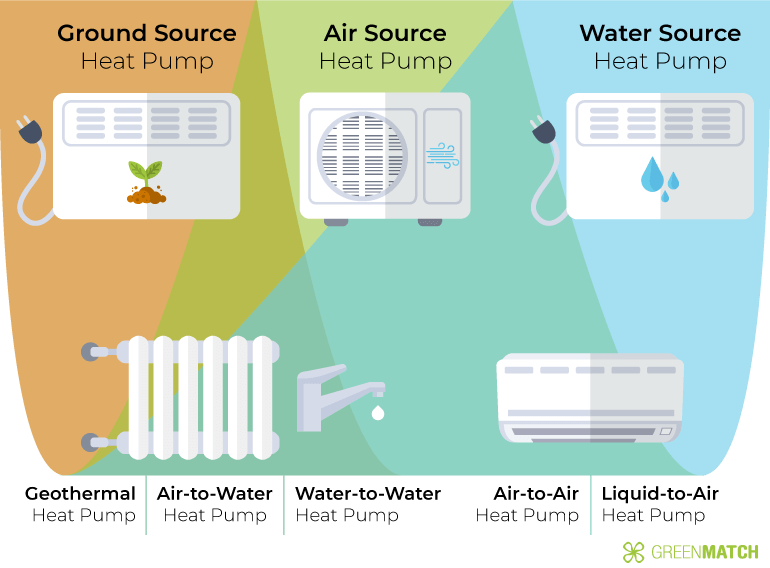
Heat Pump Usage
Technically, a heat pump that is used less often lasts longer than one that runs all the time. However, it’s always advisable to let your heat pump keep running all along, preferably even when you are not at home and still need heating or cooling.
With proper use, your heat pump will last the longest time possible. Proper usage means that you use the heat pump for the right function in the right season. During winter, use it to heat your space. In summer, you should use it for spatial cooling.
Location/Climate
Heat pumps are most suited for mild or warmer climates where the weather doesn’t go too extreme. They function best when temperatures outside are above 40°F. As the temperatures drop below this level, the heat pump loses efficiency and has to overwork to heat properly.
If you live in an area where temperatures drop below 25°F, you should consider other spatial heating solutions that can maintain efficiency at such low temperatures.
Constantly overworking your heat pump in extreme weather will undoubtedly reduce your unit’s lifespan by between two to three years.
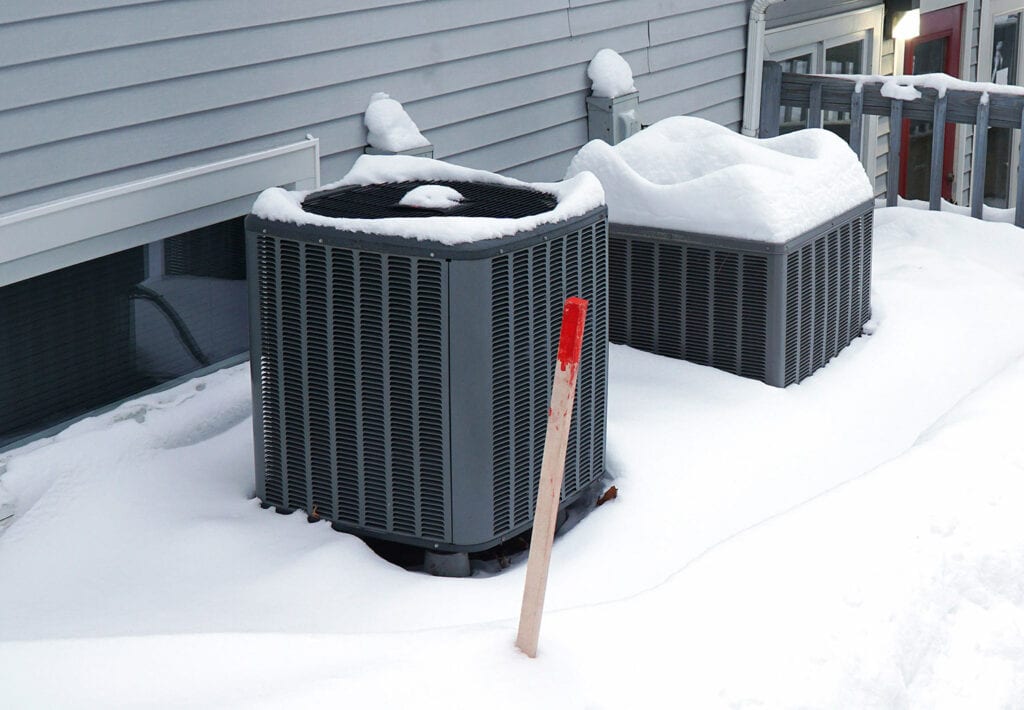
Installation Conditions
HVAC professionals advise that your heat pump be installed well in a location where it is not distracted by other appliances or home items. For the indoor unit, you should allow enough space around it for proper air circulation.
The outdoor unit should be installed with enough space all around it away from the building. There should be no vegetation or trees that might drop leaves and dead branches on the unit.
Heat pumps installed in highly salty or corrosive environments don’t last long because of the gradual wear and tear of the components.
Regular Maintenance and Servicing
Regularly maintaining and servicing your heat pump raises its life expectancy by up to two to three years more than a poorly maintained unit.
The trick in heat pump maintenance is to know what maintenance practices you can do yourself and those that require an HVAC technician.
For an even better shot at prolonging your heat pump’s life expectancy, you should consider having it serviced by a qualified HVAC professional at least once a year. If you could do that twice every year, that would even be better and safer for you.
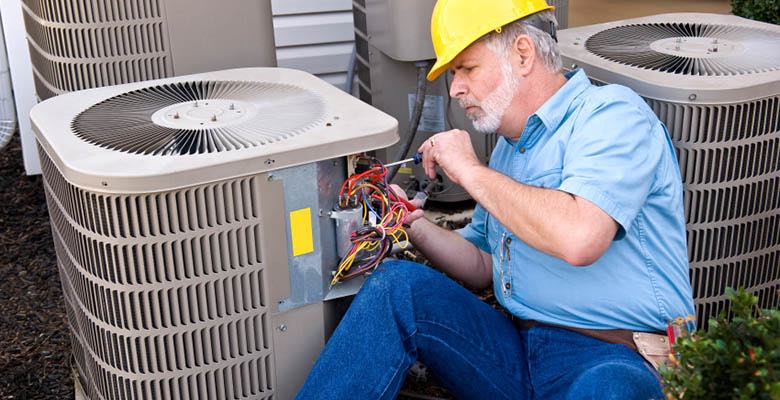
Signs Your Heat Pump Needs Replacement
Inevitably, your heat pump will require major repairs or a total replacement in the long run. But how do you know when it’s time for either of these? You should be aware of some of the signs below.
Constant Refrigerant Leakages
If you notice that your heat pump keeps leaking often, you should consider replacing the whole unit instead of calling in an HVAC professional for repeat refrigerant recharges and leakage repairs.
Frequent leakages mean that you have to spend a lot on recharging and labor fees since you will always need a certified technician to restore your heat pump’s full functionality. Such repairs and refills can be costly in the long run.
Reduced Efficiency and Extreme Power Bills
As your heat pump grows older, its efficiency in heating and cooling keeps waning.
Sometimes, factors other than age also contribute to the dwindling efficiency of the unit. Lower efficiency translates into wasted electrical energy and higher power bills as your unit works harder to achieve its purpose.
If you can’t get your heat pump to run more efficiently through minor or major repairs, you should have it replaced with a new model to cut back on the electricity bills and heat or cool your living spaces more efficiently.
Compressor Failure
In most cases, the compressor is the first heat pump component to go down permanently since it’s always running. The cost of replacing the compressor is too high, especially when the common five-year warranty has expired.
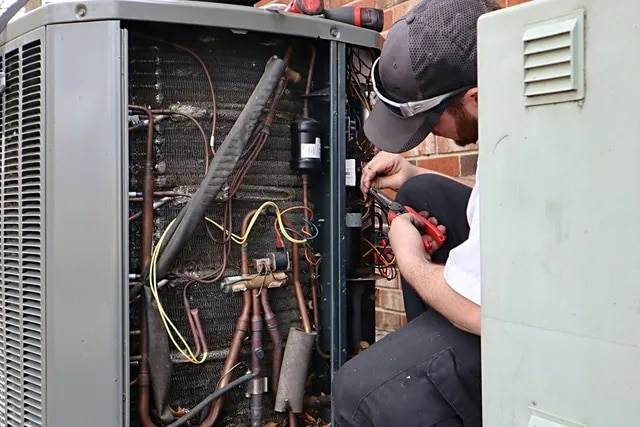
As a result, your best option is to replace the heat pump rather than replace the expensive compressor.
Tips on Maximizing Your Heat Pump’s Lifespan
It doesn’t have to be hard to prolong the life expectancy of your heat pump. Here are some handy tips you should consider.
Regular Maintenance
As noted earlier, you can boost the lifespan of your heat pump by two to three years if you maintain it regularly and properly. Some heat pump maintenance practices are easy to carry out yourself, while others require the intervention of a licensed HVAC technician.
Some of the most crucial maintenance aspects to consider include:
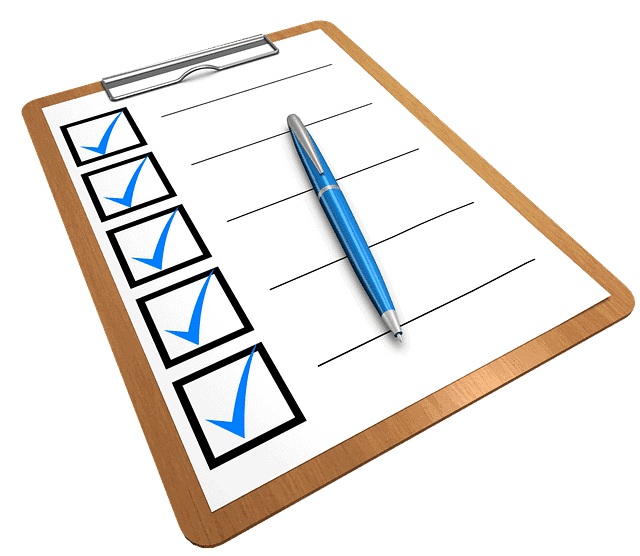
- Cleaning air filters at least once a month
- Replacing air filters after every three months
- Clearing ice on the outdoor unit during winter
- Clearing any debris like hair, linen, vegetation, leaves, and branches on the outdoor unit
- Cleaning the coils
- Servicing the heat pump at least once a year
- Recharging the refrigerant in case of leakages
Get a Programmable Thermostat
Getting a programmable thermostat will do your heat pump a lot of good. With this thermostat, you can easily control how your unit runs to manage its active and inactive hours. It’s particularly important for keeping the unit inactive when you are away from home.
However, you should consult an HVAC professional first to determine if your heat pump model is compatible with a programmable thermostat. The technician can also help you install the new thermostat.
Conclusion
The average heat pump lasts between 10 and 15 years of regular use, while modern high-end models can last as long as 20-25 years.
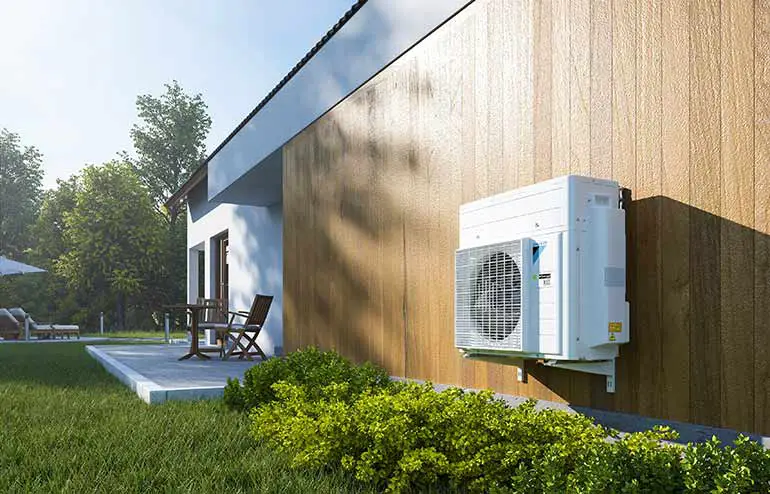
With proper installation, usage, and maintenance, you can prolong the lifespan of your unit to up to 20 years for lower models and 30 for high-end models.
The trick is to ensure that you get the routine maintenance done correctly and in good time by either you or an expert, depending on what needs to be done.
People Also Ask
Most homeowners concerned about their heat pump’s life expectancy often have questions revolving around the issue. Sometimes it’s out of worry that their unit might not last as long as they might want. Other times they want to be ready in advance for eventualities.
Replacing a heat pump will set you back between $5,000 and $12,500 to purchase the unit and have it installed by a licensed HVAC technician.
If the installation spots are inaccessible, the technician might charge you up to $75 per hour as compensation for the extra time and labor to remove debris to reach the installation spot.
Like any other HVAC appliance, heat pumps lose their efficiency as they grow older. The loss can be attributed to the inevitable breakdown of parts and wear and tear.
The longer your unit runs, the more the individual parts are exposed to wear and tear, which gradually causes a reduction in efficiency at cooling or heating.
As noted earlier, heat pumps run throughout the year, unlike other HVAC appliances like air conditioners. The constant working cycle causes heat pumps to burn out faster since the components work ceaselessly to provide cooling or heating in alternation.
